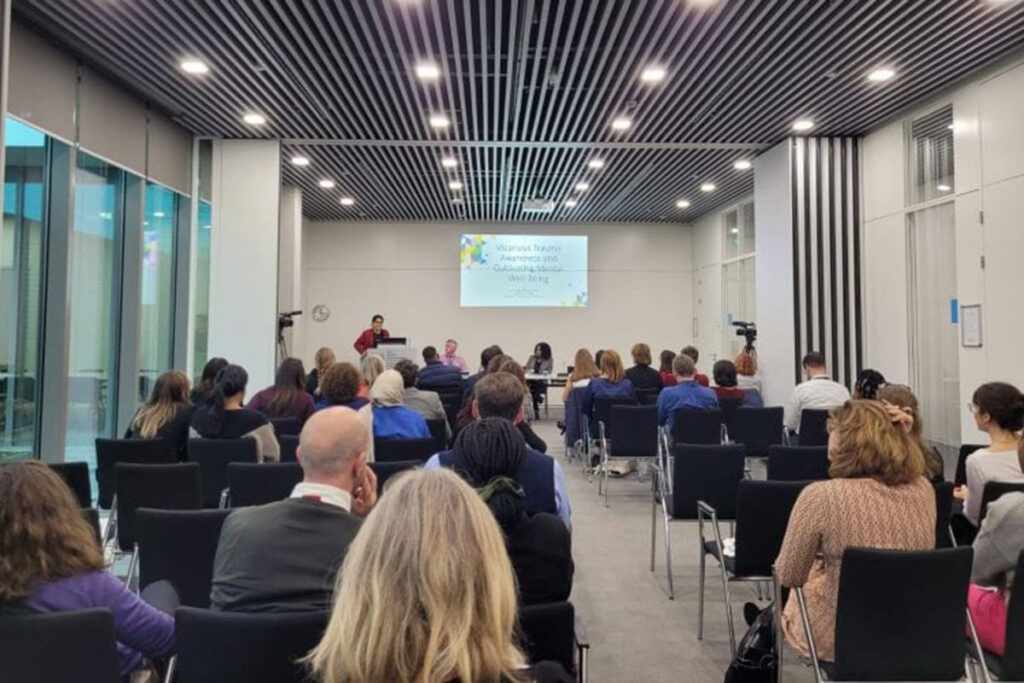Julia López, PhD, WashU assistant professor of medicine, public health faculty scholar and core faculty of the Center for Human Rights, Gender and Migration, recently traveled to the International Criminal Court (ICC) in The Hague to present on impacts and strategies related to secondary trauma, the kind of trauma one can experience after repeat exposure to the trauma of others.
The ICC Office of the Prosecutor (OTP) hosted a three-day meeting focused on ways to take a trauma-informed approach to the investigation and prosecution of human rights violations and international crimes. Dozens of experts from civil society organizations in more than 20 countries participated in the first two days with the third day scheduled as a closed meeting for OTP staff.
The roundtable was co-organized by Professor and Center for Human Rights, Gender & Migration, Kim Thuy Seelinger and OTP colleagues. Seelinger is on leave this academic year to serve as the prosecutor’s Senior Coordinator for Gender-Based Crimes and Crimes Against Children.
ICC Prosecutor Karim A.A. Khan KC and Deputy Prosecutor Nazhat Shameen Khan opened the event with brief remarks. Subsequent sessions focused on new research on trauma manifestations and impacts, as well as strategies to support those impacted by trauma. Other sessions explored specific thematic issues including trauma-informed approaches related to children, survivors of gender-based crimes, and survivors of torture.
López joined experts from Stanford University School of Medicine and the United Nations Independent Investigative Team to Promote Accountability for Crimes Committed by Da’esh /ISIL (UNITAD), and presented on the issue of secondary trauma. Lopez shared strategies for those working directly with difficult material, such as mass atrocity crimes. “It was a powerful experience, being in a room full of advocates, investigators, and prosecutors to discuss what it means to experience secondary trauma and how to provide tangible avenues for support,” Lopez said.
In the closed-door seminar for OTP staff, López expanded on her earlier presentation emphasizing the need for effective organizational and individual support. López explained, “I wanted to highlight that it isn’t only the responsibility of the individual to consider what it is that they need when considering their mental wellness – it’s also the responsibility of the larger organization and community.”
These roundtable sessions will help members of the court adopt a more trauma-informed practice. Prosecutor Karim A.A. Khan KC announced that these discussions will also inform the development of the OTP’s Handbook on Trauma-Informed Investigations and Prosecutions, which Seelinger will help draft and launch in 2024. “I hope Professor López will participate in the Handbook process,” Seelinger said. “Her expertise on trauma is so valuable to the Office – and I am excited to engage my brilliant WashU colleagues in the work here.”
Written by Adriana Aramburu, manager, Center for Human Rights, Gender and Migration.
